Argentine Navy in Falklands War by Ken Griffith, Wikimedia Commons, 1982
"When Haig first met Thatcher after the Argentine invasion, he told her that President Galtieri would not survive in office if the British Task Force made it all the way to the Falkland Islands. Thatcher responded by saying that she would not survive if the force were stopped."
~ Joseph Mauro, The Falkland Islands War: Diplomatic Failure in April 1982, 2010
Political self-preservation greatly influenced not only President Galtieri and Prime Minister Thatcher, but also British Defense Secretary John Nott, British Foreign Secretary Francis Pym, and even Alexander Haig. The Argentine junta had a tarnished reputation for abusing citizens' civil rights and not being able to solve the worsening economic crisis in Argentina. The junta had been growing increasingly unpopular and was in danger of being overthrown, which prompted the junta to save their political skin by invading the Falklands. Much of their inability to compromise was because the junta couldn't afford to damage their public image.
"...during the dictatorship of 1976-1983, through a repressive wave that in the workplace translated into massive dismissals, killings and the disappearance of shop stewards and activists. Workers’ opposition manifested itself during these years in strikes and conflicts often led secretly by comisiones internas."
~ Maurizio Atzeni, Labour Movement in Argentina since 1985, 2009
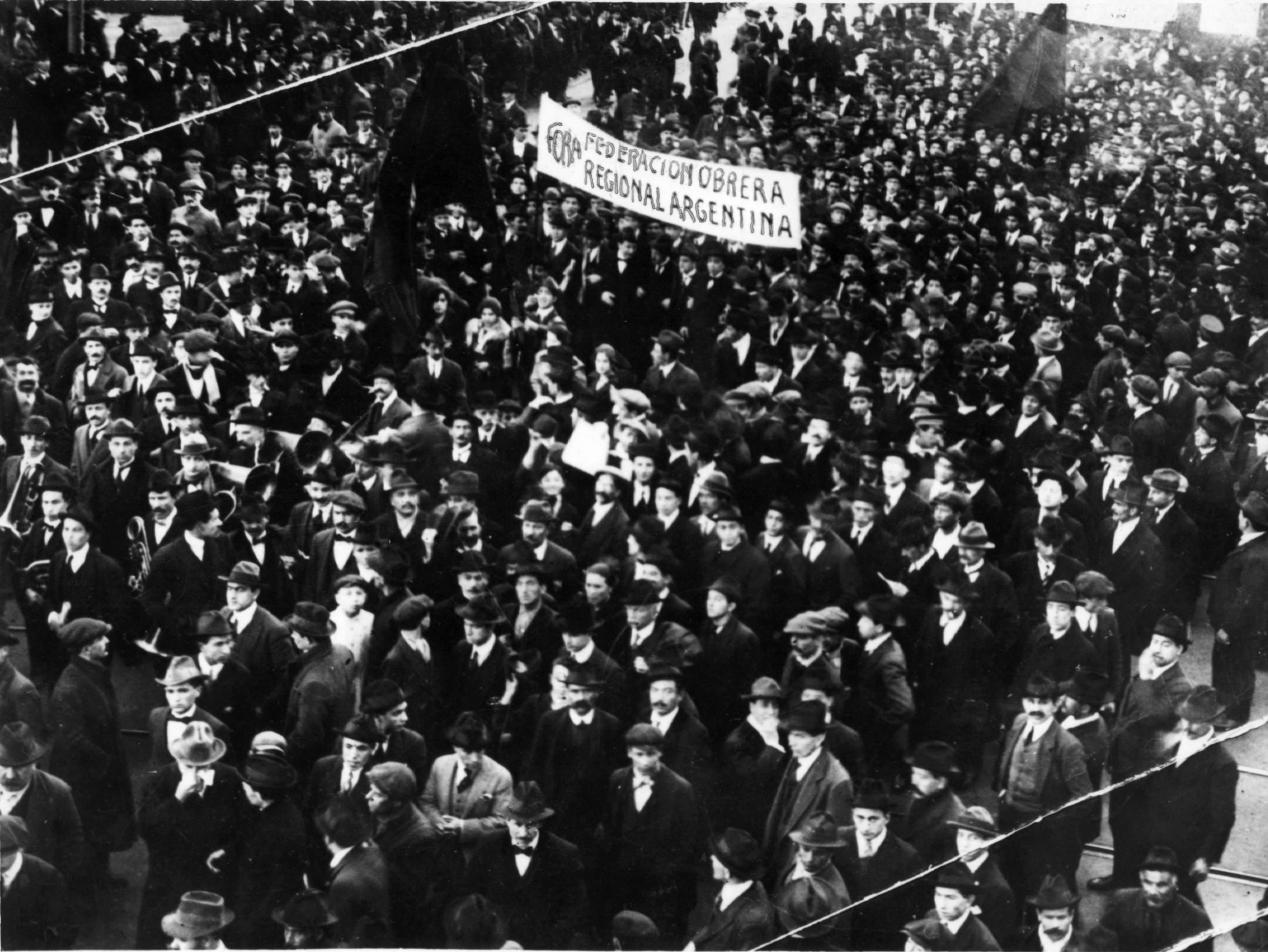
Union Strike in Argentina, FORA Archives, 1982
"Just overnight the labor unions now were supportive of the government due to their common sense of nationalism. But if Galtieri then compromised on the one thing that he had going for him in his relationship to people who otherwise hated him, then he knew that he wasn't going to stay in power."
~ Professor Lowell S. Gustafson, Zoom Interview, 30 January 2022
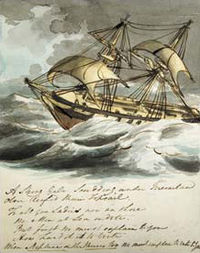
British Capture Falklands in 1833 by William Farrington, Wikimedia Commons, 1834
"In a country whose internal politics were often fraught and which, in 1982, was ruled by an unstable and unpopular military oligarchy, this was the only issue guaranteed to produce emotional unity. As the 150th anniversary of what Argentina saw as unjust occupation approached, the junta grabbed a symbolic moment to right the seeming wrong."
~ Charles Moore, Margaret Thatcher: The Authorized Biography, 2013
"...Galtieri was not a malicious backstabber but simply a leader who could not compromise without losing his job. Given its domestic position, it is not surprising that the junta continued to refuse to meet Britain’s minimum requirements for continuing negotiations, even after South Georgia had been retaken and when most observers knew that Argentina would probably lose to the British."
~ Alexander Haig, Caveat: Realism, Reagan and Foreign Policy, 1984
"Invading the Falklands - or 'the Malvinas', as Buenos Aires would have them called - gave the Argentinian people a cause célèbre and the majority were soon happily immersed in a nationalistic crusade to liberate the islands; temporarily forgetting Galtieri's track record at home."
~ Commander Nigel "Sharkey" Ward, the Black Death, 1982
British Prime Minister Margaret Thatcher, the nation's first female prime minister, was facing sharp criticism from both her cabinet and the public during her first term as prime minister. Due to her domestic policies, savage government spending cuts, a declining manufacturing industry, and high unemployment, many expected Thatcher's position as prime minister to be short lived. However, when Argentina invaded the Falklands, it gave Prime Minister Thatcher the perfect opportunity to redeem herself. Not only that, Thatcher and her cabinet was also pressured by the Falkland Islanders and their supporters to rescue them from Argentine rule at all costs.
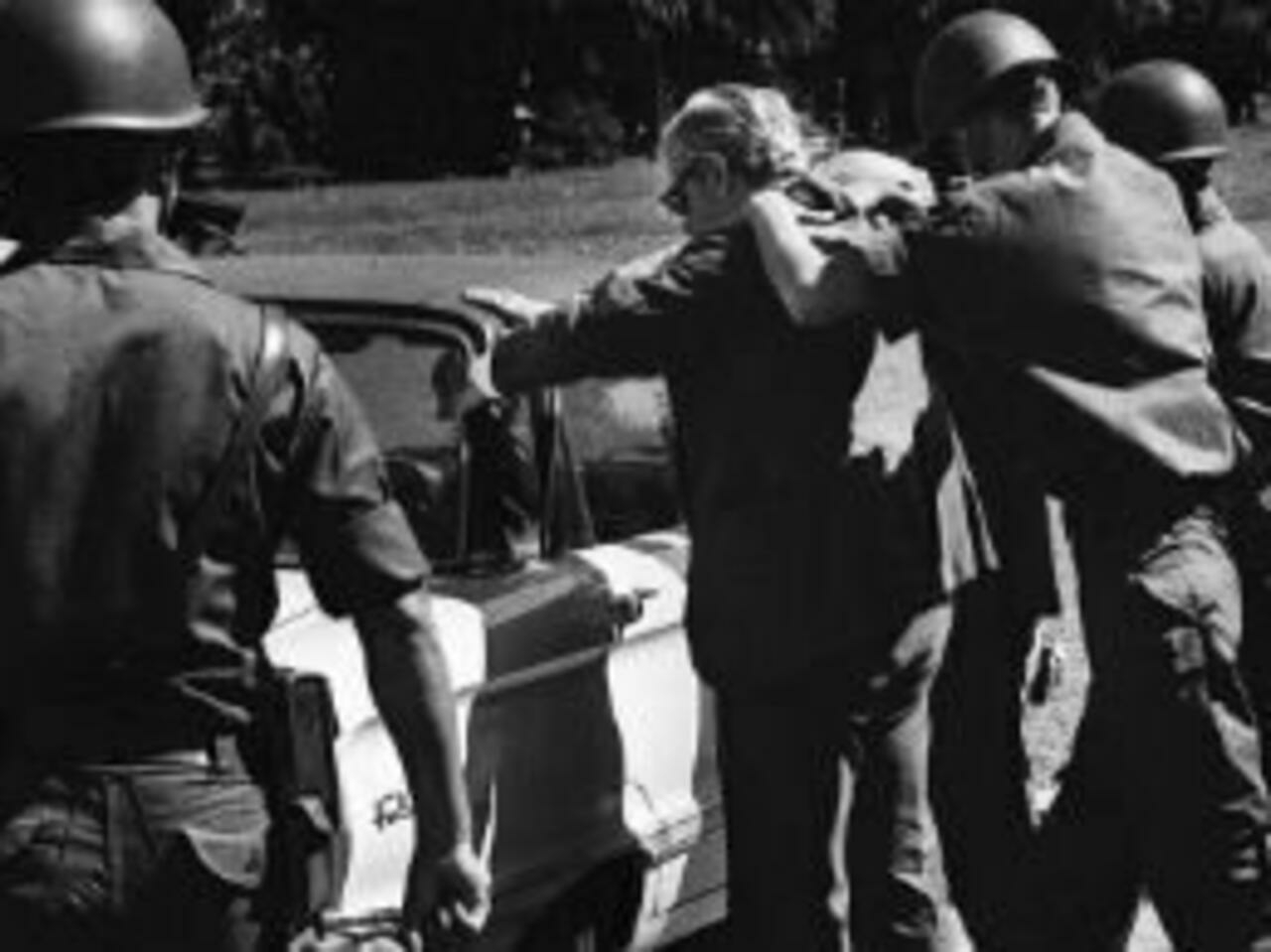
Argentine Junta Committing Human RIghts Abuses, France 24, 1983
"I think both sides ended up unable and unwilling, completely disinterested in compromise. From Margaret Thatcher’s point of view, this was a wanted act of aggression by a regime that committed human rights abuses, that had absolutely denied the local population its own wishes. And that this was the first use of force in the settlement of international disputes. This was just wrong on every level, so she just wasn’t going to back down."
~ Professor Lowell S. Gustafson, Zoom Interview, 30 January 2022
"Between 1979 and 1982, with Thatcher as prime minister, Britain experienced economic deflation. Manufacturing output fell, and unemployment rose. The first phase of ‘Thatcherism’ was very punishing. The difference was that, unlike Edward Heath, Thatcher did not buckle, did not do a U-turn, despite pressure to do so from her all-male Cabinet, who were insisting she reflate the economy. Even so, this was her lowest moment, without question. The Times suggested the Iron Lady was showing signs of metal fatigue!"
~ Professor Victor Bailey, Email Interview, 31 December 2021
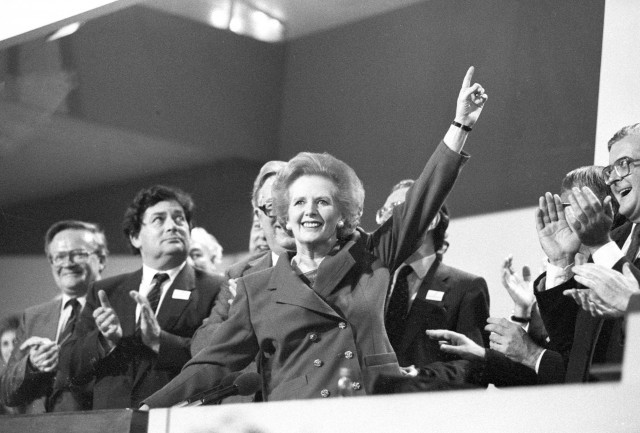
Thatcherism in Great Britain by Reuters, Conservative Party Conference, 1979
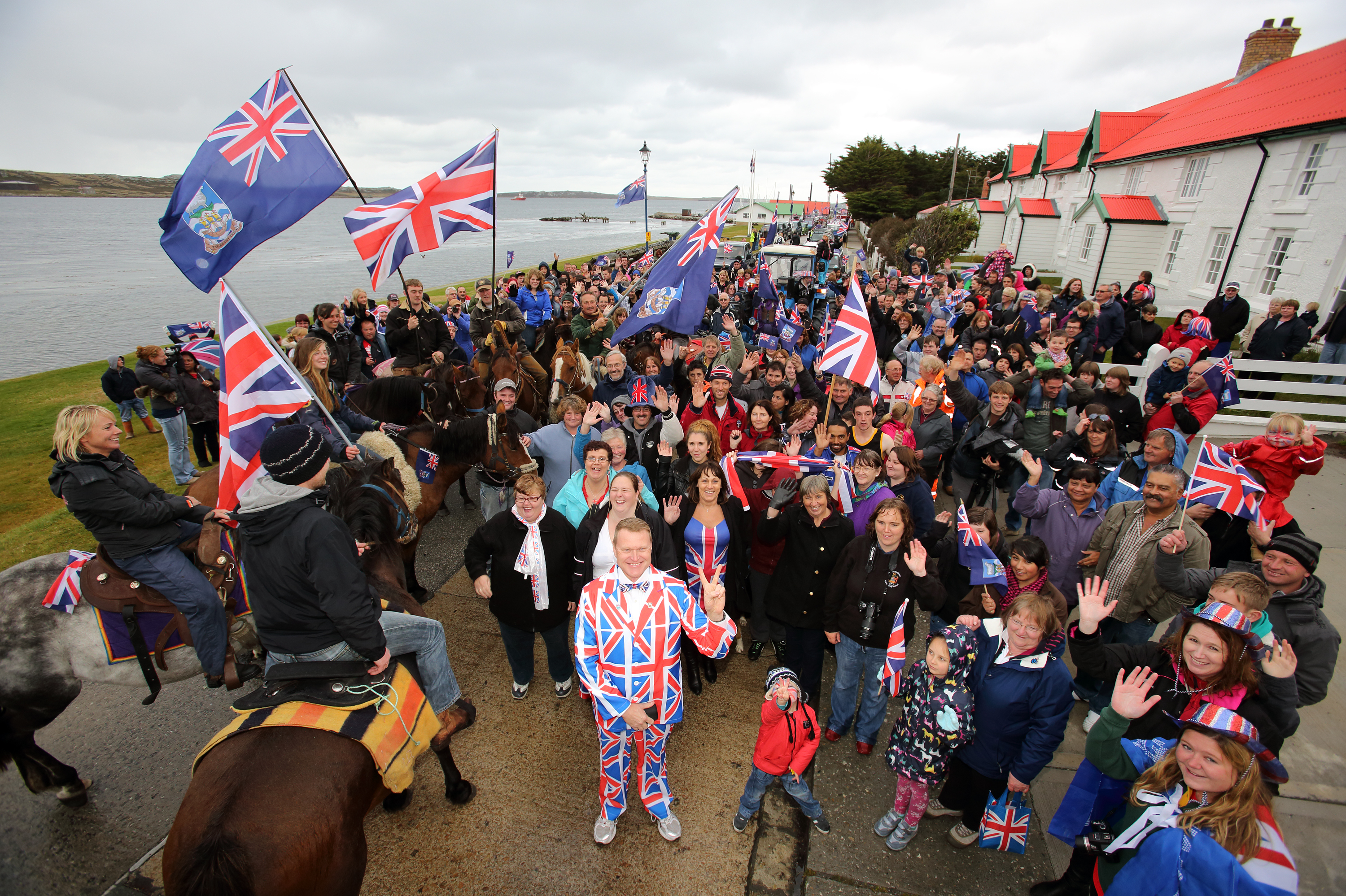
Falkland Islanders Support British Rule by Tony Chater, Getty Images, 2013
"Thatcher also helped bring about the change in opinion, continually stating in public speeches that the laws of the United Nations gave Britain the right to use whatever measures were necessary for self defense, including military action. By April 17, one in four Britons favored bombing the islands and 67% wanted to land troops. 33 As the British public rallied behind the cause for war, Thatcher was pushed in that direction as well."
~ Joseph Mauro, The Falkland Islands War: Diplomatic Failure in April 1982, 2010
"We must find an element that brings cohesion to society and the country. That element is Malvinas."
~Admiral Jorge Isaac Anaya, 1982